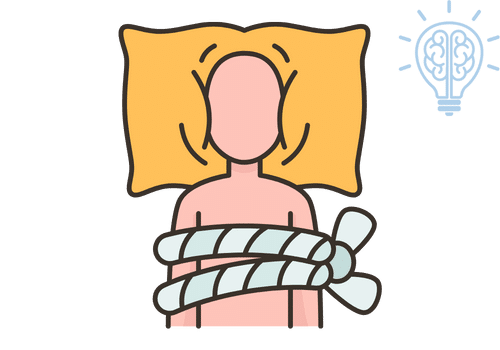What Is Task Paralysis?
Task paralysis occurs when an individual feels overwhelmed by a task to the point that they cannot take action. Despite wanting to complete the task, they find themselves stuck, unable to begin or make progress. This often leads to frustration, stress, and missed deadlines.
Task paralysis is particularly common in individuals with executive function challenges, such as ADHD, anxiety, or perfectionism, but anyone can experience it when faced with tasks that feel too large, complex, or emotionally taxing.
Why Does Task Paralysis Happen?
Task paralysis is often triggered by cognitive and emotional barriers, including:
🔄 Overwhelm from Too Many Steps
Large tasks with multiple steps can feel impossible to complete, leading to avoidance.
🧠 Perfectionism
The fear of not doing something perfectly can create anxiety that stops action altogether.
⏳ Time Blindness
Struggling to estimate how long a task will take can lead to procrastination and inaction.
😓 Fear of Failure
Worrying about making mistakes can cause hesitation and avoidance.
🔥 Decision Fatigue
When a task involves too many choices, the brain may shut down to conserve energy.
💭 Low Dopamine Levels
People with ADHD often struggle with dopamine regulation, making uninteresting tasks feel almost impossible to start.
How Task Paralysis Relates to Executive Function
Task paralysis is deeply connected to executive function skills, including:
- Task Initiation: The ability to start tasks without procrastination.
- Planning & Prioritization: Breaking tasks into manageable steps.
- Emotional Regulation: Managing stress and anxiety tied to tasks.
- Working Memory: Holding and organizing task-related information.
- Self-Monitoring: Recognizing when inaction is occurring and making adjustments.
Signs You Might Be Experiencing Task Paralysis
- ⚡ You feel frozen when you think about starting a task.
- ⏳ You keep delaying work, even when you know you should start.
- 🔥 You feel overwhelmed by all the steps involved.
- 🤯 You cycle between stress and avoidance, leading to last-minute panic.
- 💭 You find yourself thinking about the task constantly but not taking action.
Strategies to Overcome Task Paralysis
Breaking free from task paralysis requires strategies that simplify the task, increase motivation, and reduce mental overwhelm.
✅ 1. Use the “Five-Minute Rule”
Commit to working on the task for just five minutes. Often, once you start, momentum builds, making it easier to continue.
✅ 2. Break Tasks into Micro-Steps
If a task feels too large, break it down into the smallest possible steps. Example: Instead of “Write my report,” start with “Open a new document.”
✅ 3. Create a Task Initiation Ritual
Use a specific action to signal the start of work, such as making a cup of tea, putting on instrumental music, or using a countdown timer.
✅ 4. Remove the Pressure of Perfectionism
Set a goal to complete a “bad first draft.” Remind yourself that getting started is more important than getting it perfect.
✅ 5. Set External Accountability
Tell a friend, coach, or coworker about your task and when you plan to complete it. Having someone check in can increase motivation.
✅ 6. Use a Timer or Body Doubling
Set a timer for focused work periods (e.g., Pomodoro Technique). Alternatively, work alongside someone else to stay engaged.
✅ 7. Reduce Decision Fatigue
Pre-plan tasks in advance, so you don’t have to decide what to do in the moment. Example: Create a daily to-do list with pre-determined priorities.
✅ 8. Reward Progress, Not Just Completion
Celebrate small wins along the way. Even completing a single step deserves recognition.
How Executive Function Coaching Can Help
For individuals who struggle with task paralysis, executive function coaching provides personalized strategies to build momentum and overcome inaction. Coaching can assist with:
- Identifying root causes of task paralysis (e.g., perfectionism, overwhelm).
- Developing structured routines to make task initiation easier.
- Creating accountability systems to stay on track.
- Strengthening executive function skills like planning and emotional regulation.
By applying these strategies, individuals can break the cycle of procrastination, reduce stress, and develop a healthier approach to completing tasks.
📞 Struggling with task paralysis? Contact us for executive function coaching today!




